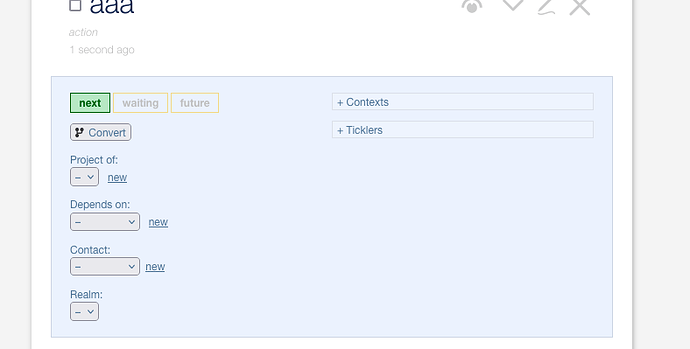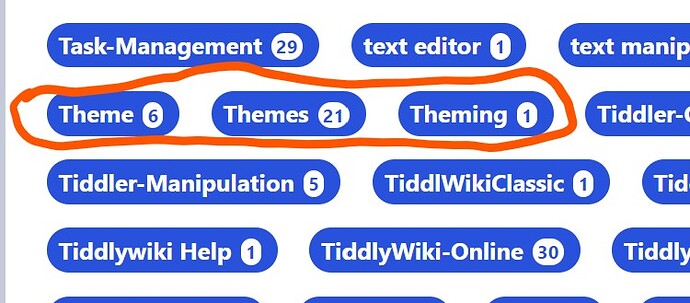Ontology is the dictionary that a community shares. It will improve interoperability between plugins.
Let me explain!
Interoperability: For example, I’m trying to develop my GTD plugin, and found there are many existing plugins but stops developing. So if use tmo:dueDate as the field for the task’s due date, other GTD plugin that is reading the same field tmo:dueDate can read the user’s todo tiddler, and two GTD plugin can work together.
We can see the Projectify plugin and GSD5 plugin can’t work together seamlessly. But each of them has some handy features, we really hope the whole community’s plugin can work together. This “work together” is what Interoperability is about.
Ontology: We know it is hard to think about “what field name I should use, so other plugin developers can agree with me to use the same field name”. Lucky, Some experts have made their efforts to write down these field names, and listed them on the website like https://www.semanticdesktop.org/ontologies/2008/05/20/tmo , which contains a dictionary of field names. These dictionaries are called Ontology.
Let’s use ontology!
I suggest when we develop a new plugin, we first search for the ontology that we can use. If everyone does so, our plugin will create the same data, and the user will find that their tiddler become so powerful that can power many plugins to work as a chain.
And aggregator like DynamicTable will be able to display the fields of all your plugins in very few columns. Without needing hundreds of columns to display all fields in your wiki.
Using the same dictionary will make us work together more tightly. And will make user fell their tiddlywiki more productive and clean!
How to find Ontology you want?
Let’s search here GitHub - taurenshaman/semantic-web: Storing ontologies/vocabularies from the web. Wish anybody can translate some of them.
It contains dictionary in both English and Chinese translated.
For example, search for task-related concepts: Search · task · GitHub
After the search you will find website links like http://www.semanticdesktop.org/ontologies/2007/01/19/ , you can view these websites to find detailed comments about these fields.
Fell free to ask me anything about ontology
I was working in the SoLiD project, so I’m very fremiliar with these things, if you feel confused or need some help finding your field name, feel free to ask me!




 .
.